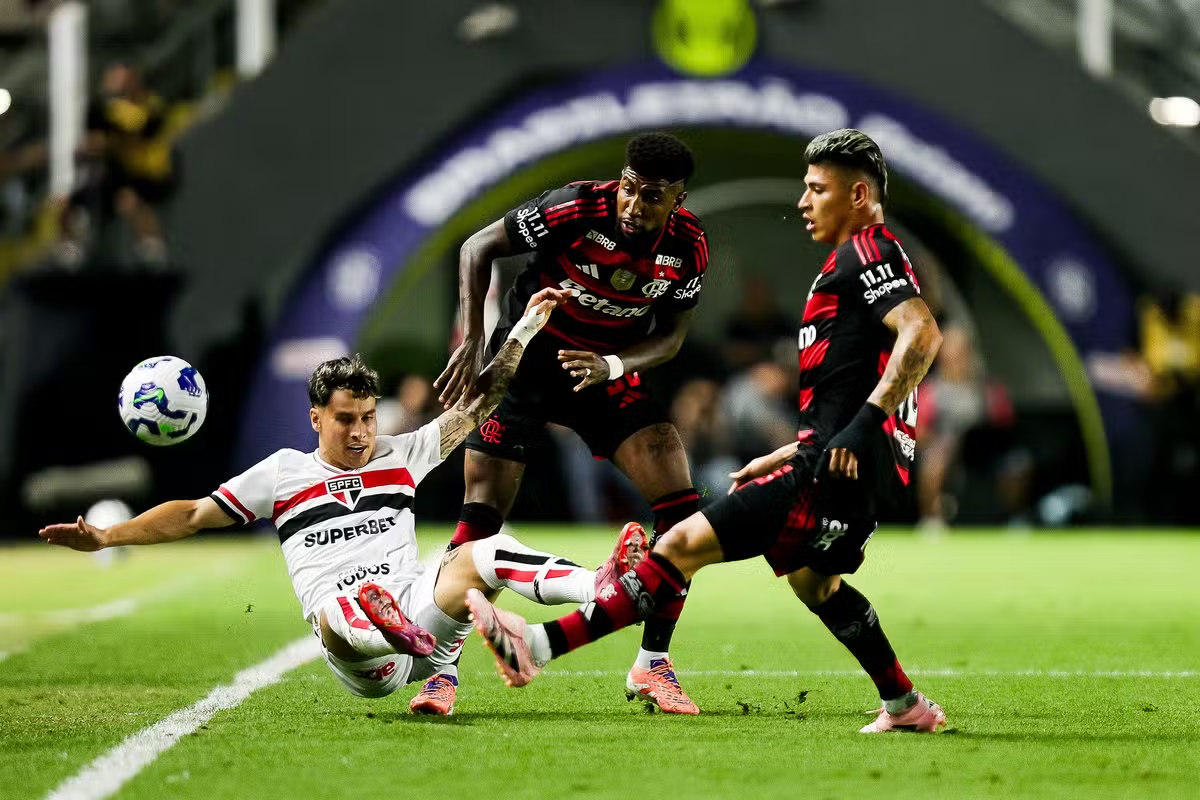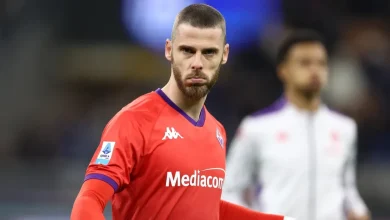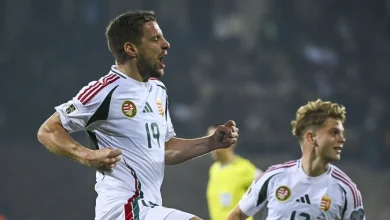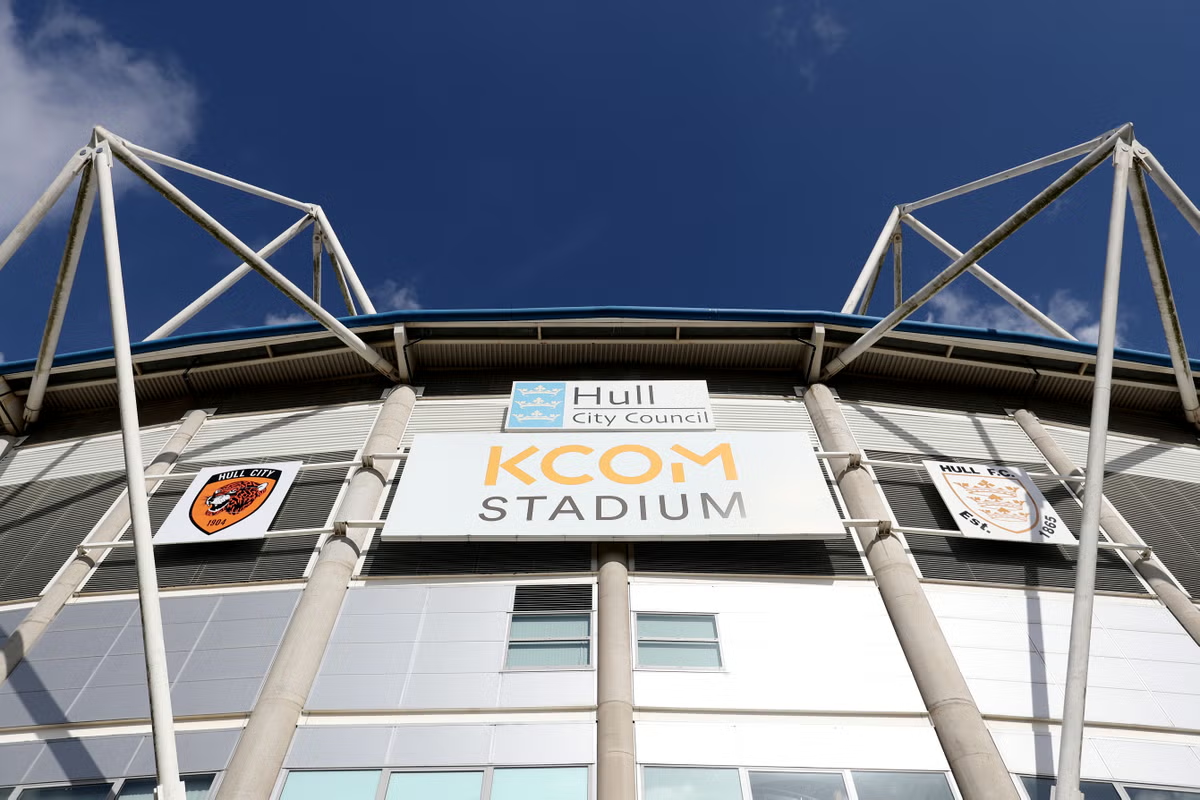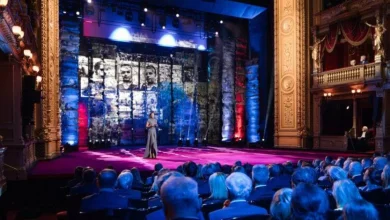Irish football’s relationship with Portugal is a good one. Just don’t mention Raul Nazaré

The FAI have good reason to remember the last time Roberto Martinez led an international side out at the Aviva Stadium. In March 2022, then as manager of Belgium, Martinez visited Dublin for the FAI centenary match. Martinez’s birthday gift to his hosts was a team sheet omitting Belgium’s golden generation, selecting instead a reserve team strong enough to draw 2-2.
If the Irish public had difficulty recognising some Belgian players, they had no such problem with Martinez’s coaching staff. It included Anthony Barry, who had just departed Stephen Kenny’s Ireland setup, and Thierry Henry, who literally had a hand in the greatest injustice in Irish soccer history.
On Thursday, Martinez returns to the Aviva Stadium as Portugal manager without enjoying the luxury of picking a shadow team. The concession of an injury-time equaliser to Hungary last time out leaves Portugal still requiring a point to confirm World Cup qualification.
There will therefore be no night off for star player Cristiano Ronaldo on his return to Dublin, where in 2009 he made his Real Madrid debut in a friendly against Shamrock Rovers at Tallaght Stadium. Describing Ronaldo merely as a star player significantly underestimates his actual astrological status which received a massive upgrade in 2015 when an entire galaxy (Cosmos Redshift 7) was named after him.
Ronaldo’s 143 international goals is 572 per cent higher than the combined total of 25 goals shared by all 25 players in the Ireland squad. His 225 appearances for Portugal make him the most capped footballer in history – a record he will break simply by stepping onto the pitch in Dublin. As Ronaldo observed with characteristic humility to his 664 million Instagram followers: “I do not follow the records, the records follow me.”
Last month Fortune magazine announced Ronaldo as football’s first billionaire, with Ireland contributing generously to this wealth as a Dublin company manages his lucrative image rights. The global box-office demand for Ronaldo is so overwhelming that when he doesn’t play, opposition fans are even more disappointed than his own supporters. In 2019, a group of South Korean fans sued for “mental anguish” after he was omitted by Juventus for a pre-season friendly in Seoul.
A handful of Irish internationals have played in Portugal, including winger Mikey Johnston who was on loan at Vitória de Guimarães when he made his senior international debut against Latvia in March, 2023. Phil Babb won the league and cup double with Sporting Lisbon in 2002, where Alan Mahon was briefly a teammate.
[ Cristiano Ronaldo has not lost his self-regard in latest interviewOpens in new window ]
The most successful Irish export, Mickey Walsh, won back-to-back titles with Porto but lost the 1984 Cup Winners’ Cup final against a Juventus team managed by Giovanni Trapattoni. The prize for most interesting career trajectory goes to Dominic Foley, who won six Irish caps playing in five counties including Portugal. Foley now coaches the Charleville hurling team, becoming the first former Sporting Braga player to manage a side in the Cork club championship.
Dominic Foley during one of his six appearances for Ireland, against Finland at Lansdowne Road in 2000. Photograph: Lorraine O’Sullivan/Inpho
In recent years, the only Irish thing successfully transferred to Portugal on a long-term contract was the Web Summit. However, huge excitement surrounds Jaden Umeh, who in 2024 left Cork City for Benfica and who last week scored for Ireland at the FIFA Under-17 World Cup. Joining him in the Portuguese top flight is former under-21 captain Joe Hodge, who plays for Tondela. Making the reverse journey is left-back Benny Couto who plays for Cork City but missed last weekend’s FAI Cup final defeat to Shamrock Rovers through injury.
The infrequent meetings between Irish and Portuguese club sides in Europe are usually memorable affairs. In August, Shamrock Rovers qualified for the Europa Conference League group stage by drawing 0-0 against Santa Clara at Tallaght Stadium having won the away leg 2-1.
In 1989, Derry City’s reward for winning the League of Ireland Premier Division was a European Cup tie against Sven-Goran Eriksson’s Benfica. Among the visiting delegation was Eusébio, who conducted the half time raffle on the Brandywell pitch.
In 2010, Sporting Fingal played the only European tie in their three-season existence against Maritimo in the Europa League, with the Portuguese team progressing 6-4 on aggregate. The following year, Dublin hosted the first ever all-Portuguese European final when Porto beat Braga 1-0 to win the 2011 Europa League at the Aviva Stadium.
Alan Kirby of Sporting Fingal (left) in action against Maritimo’s Ricardo Filipe Santos Esteves during a Europa League second qualifying round match in 2010. Photograph: Donall Farmer/Inpho
Ireland and Portugal joined Fifa on the same day in 1923 and previous World Cup interactions between the countries have always been conducted in a cordial manner. In 1950, Scotland’s late withdrawal from the World Cup led Fifa to offer the vacant spot to Portugal and subsequently Ireland, who both declined.
For possibly the only time in its history, the FAI displayed excessive financial prudence by rejecting the opportunity to travel to Brazil, believing that the £2,700 cost would bankrupt them. The countries were drawn together in qualifying for the 2002 World Cup, with Ireland and Portugal playing out a pair of 1-1 draws that enabled both to progress to the finals at the expense of Holland. Portugal’s most recent visit to the Aviva Stadium was a 0-0 draw during qualification for the 2022 World Cup.
The Portuguese person to inflict the greatest damage to Irish World Cup hopes was neither a player nor manager, but an official. Playing a crucial 1982 World Cup qualifier in Belgium, Portuguese referee Raul Nazaré disallowed a Frank Stapleton goal for reasons that still defy explanation.
The decision provoked such fury that in his autobiography, Liam Brady recalls asking Porto-based teammate Walsh what the Portuguese word for ‘thief’ was before confronting Nazaré.
Ireland finished third in the a group of death including France, Holland and Belgium – missing qualification for a first major tournament on goal difference.
Even the more optimistic of Irish fans do not expect our margin of World Cup failure to be quite so slim this time around.

